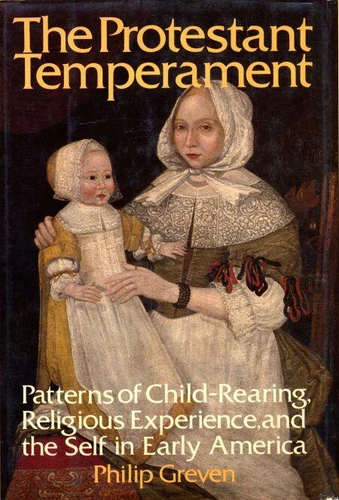The Protestant Temperament
Par :Formats :
Disponible dans votre compte client Decitre ou Furet du Nord dès validation de votre commande. Le format ePub protégé est :
- Compatible avec une lecture sur My Vivlio (smartphone, tablette, ordinateur)
- Compatible avec une lecture sur liseuses Vivlio
- Pour les liseuses autres que Vivlio, vous devez utiliser le logiciel Adobe Digital Edition. Non compatible avec la lecture sur les liseuses Kindle, Remarkable et Sony
- Non compatible avec un achat hors France métropolitaine
 , qui est-ce ?
, qui est-ce ?Notre partenaire de plateforme de lecture numérique où vous retrouverez l'ensemble de vos ebooks gratuitement
Pour en savoir plus sur nos ebooks, consultez notre aide en ligne ici
- Nombre de pages432
- FormatePub
- ISBN978-0-307-83134-7
- EAN9780307831347
- Date de parution04/09/2013
- Protection num.Adobe DRM
- Taille2 Mo
- Infos supplémentairesepub
- ÉditeurKnopf
Résumé
Bringing together an extraordinary richness of evidence-from letters, diaries, and other intimate family writing of the 17th and 18th centuries-Philip Greven, the distinguished scholar of colonial history explores the strikingly distinctive ways in which Protestant children were reared, and the Protestant temperament shaped, in America. Through this cache of remarkable and remarkably immediate and moving material - the family papers of some of America's most famous theologians, political figures, lawyers, and ministers as well as those of lesser-known contemporaries (farmers, merchants, housewives) who embodied Protestant life and wrote about it most expressively-Philip Greven traces the hidden continuities of religious experience, of attitudes toward God, children, the will, the body, sexuality, achievement, pleasure, virtue, and selfhood among the three Protestant groups of the time.
He examines, in turn, the three strains that persisted regardless of denomination. First, the "evangelicals" (their dictum for raising children: "Break their wills that you may save their souls"), ruled by a hostility to the self, a feeling that selfhood is the source of sin, too dangerous to be sought or desired (Jonathan Edwards wrote: "I have been before God and have given myself, all that I am, and have, to God; so that I am not, in any respect, my own .
He examines, in turn, the three strains that persisted regardless of denomination. First, the "evangelicals" (their dictum for raising children: "Break their wills that you may save their souls"), ruled by a hostility to the self, a feeling that selfhood is the source of sin, too dangerous to be sought or desired (Jonathan Edwards wrote: "I have been before God and have given myself, all that I am, and have, to God; so that I am not, in any respect, my own .
Bringing together an extraordinary richness of evidence-from letters, diaries, and other intimate family writing of the 17th and 18th centuries-Philip Greven, the distinguished scholar of colonial history explores the strikingly distinctive ways in which Protestant children were reared, and the Protestant temperament shaped, in America. Through this cache of remarkable and remarkably immediate and moving material - the family papers of some of America's most famous theologians, political figures, lawyers, and ministers as well as those of lesser-known contemporaries (farmers, merchants, housewives) who embodied Protestant life and wrote about it most expressively-Philip Greven traces the hidden continuities of religious experience, of attitudes toward God, children, the will, the body, sexuality, achievement, pleasure, virtue, and selfhood among the three Protestant groups of the time.
He examines, in turn, the three strains that persisted regardless of denomination. First, the "evangelicals" (their dictum for raising children: "Break their wills that you may save their souls"), ruled by a hostility to the self, a feeling that selfhood is the source of sin, too dangerous to be sought or desired (Jonathan Edwards wrote: "I have been before God and have given myself, all that I am, and have, to God; so that I am not, in any respect, my own .
He examines, in turn, the three strains that persisted regardless of denomination. First, the "evangelicals" (their dictum for raising children: "Break their wills that you may save their souls"), ruled by a hostility to the self, a feeling that selfhood is the source of sin, too dangerous to be sought or desired (Jonathan Edwards wrote: "I have been before God and have given myself, all that I am, and have, to God; so that I am not, in any respect, my own .




